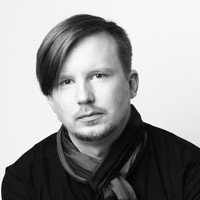New Deputy GA to oversee the School's educational offer
Daniel Koch has been appointed today as Deputy Director of First and Second Cycle Education (Deputy GA) for a development assignment within the education. In his new role, he will, among other things, carry out a review of the educational offer within the school (initially advanced level). The assignment corresponds to 30% of a full-time position during the period 1 October 2024 - 30 September 2026.

Daniel Koch is Associate Professor in Urban Design with specialisation in Spatial Analysis and docent in Architecture at KTH Architecture. He is Deputy Programme Director for the Master's programme Sustainable Urban Planning and Design. As Deputy Director of First and Second Cycle Education, he will work together with Director of First and Second Cycle Education Eva Liedholm Johnsson and Deputy Director of First and Second Cycle Education Malin Wennerholm.
How does it feel to have been appointed to this new role?
New challenges are always exciting and education has always interested me, so it feels fun and inspiring. But at the same time as it's great to be trusted, I also feel the expectations and responsibilities.
What is the focus of your new assignment?
The main focus of the assignment is to investigate and make recommendations on how the educational structure at the ABE school can be developed going forward. Preliminarily, the initial focus will be on the programmes at advanced level (master) and outputs rather than inputs. That said, the entire educational structure is included, so it is really more about which end we start from than what defines the assignment, and the direction the work takes will also evolve over time. Then it is the Faculty Board that takes it further to possible concrete action.
What is the first step now?
The first step will be to familiarise myself better with the current reality at ABE and in a broader context in the Nordic region and Europe, even though I have relatively good insights into many contexts. This includes going through existing programme analyses, but also starting the dialogue with the programme directors, teachers and students involved to better understand how things look in practice today. Most educational programmes have deeper and more complex reasons for why they exist and how they are structured than may be reflected in learning objectives and programme analyses, which have their own purposes and focus.
